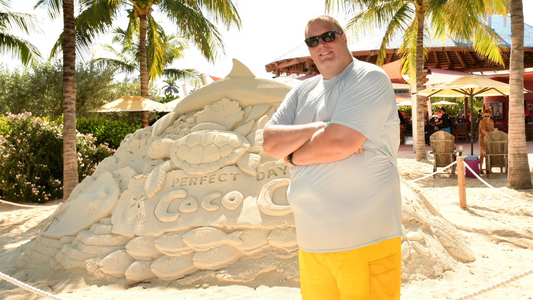
Can You Gain Muscle in a Calorie Deficit?
If your fitness goals include not only shedding fat but also building muscle, you are not alone. Reducing fat typically requires a calorie deficit. That means you have to consume fewer calories than you burn. On the other hand, the traditional assumption is that you need a calorie surplus to build muscle, which means consuming more calories than you burn. Can you gain muscle in a calorie deficit? Recent research indicates that it is possible, but there are some things you should understand if this is your goal. Let ZOZOFIT help you determine what's best for your lifestyle.
How Can You Gain Muscle in a Calorie Deficit?
New perspectives on muscle gain indicate that you may be able to build muscle even when you are maintaining a calorie deficit to shed fat.
Protein Consumption
One key element is that your protein intake contributes more to your body’s muscle gains than your overall calorie intake. Consuming enough protein, even in a calorie deficit, can help your body sustain existing muscle and build more. As a result, consider increasing your protein intake throughout your calorie deficit to provide your body with the foundation it needs to build muscle.
Nutrient Timing
The timing of your nutrient consumption also contributes to your body’s muscle growth. Schedule your meals so that you consume carbohydrates and plenty of protein just before your workouts to provide your body with the energy and fuel it needs for training and the post-workout muscle repair.
Resistance Training
Your body needs resistance training for peak muscle growth. Resistance training stimulates your muscles so that they respond properly. For consistent muscle gains, challenge your muscles with progressively heavier weights to trigger hypertrophy.
Body Composition
Your body composition plays a role in your ability to shed weight and gain muscle at the same time. You might think that leaner bodies have a greater chance of building muscle, but that isn’t necessarily true in a calorie deficit. Can you gain muscle in a calorie deficit with higher body fat? Yes, you can. When you have a higher body fat percentage, you are more likely to be able to shed fat and gain muscle simultaneously.
Hormonal Elements
Hormone balance is essential for your body’s fitness journey. Adequate sleep, proper stress management and a healthy lifestyle all contribute to keeping your hormones at the levels necessary for muscle growth.
What Is the Science Behind Muscle Gains in a Calorie Deficit?
As scientists explore the basics of your body’s calorie deficit response and muscle gain fundamentals, they discover mechanisms that explain the phenomenon. Can you gain weight in a calorie deficit? These elements of science say that you can.
Protein Synthesis
Providing your body with adequate protein and stimulating that protein use through resistance training encourages your body to synthesize protein into muscle tissue even with a calorie deficit. The combination creates an environment where your body can repair and build muscle tissue without excess calories.
Protein Leverage
The protein leverage hypothesis considers that humans have a fixed target for protein intake. Consuming less protein than the target causes your body to prioritize muscle preservation or muscle mass gains to protect itself, even in the absence of excess calorie consumption.
Using Fat as Energy
In a calorie deficit, your body taps into fat stores for energy. That stored energy can fuel muscle growth as well, especially in those with adequate excess fat for conversion.
What Are Practical Indications of Gaining Muscle in a Calorie Deficit?
When you consider the fitness industry as a whole as well as the science of body sculpting, you can find several real-world indications that you can gain muscle while in a calorie deficit. For example, bodybuilders often cycle through low-calorie diet phases to reduce any body fat before competitions. Despite that calorie deficit, they maintain and even gain muscle because of the extensive resistance training and protein intake.
Many athletes have weight category targets to hit in order to qualify for events. This poses a challenge for sustaining muscle mass, which is denser than fat. Many athletes stagger nutrition and training efforts, including calorie deficits, to achieve those weight goals without sacrificing muscle.
Body recomposition is another process that targets fat loss with muscle gains. In most cases, people undergoing recomposition focus on calorie deficits on their non-training days and surpluses on their training days.
Can You Gain Muscle in a Calorie Deficit Regardless of Genetics?
Genetics do play a role in your body’s ability to respond to calorie deficits and muscle gain efforts. Some people may gain muscle more easily in a calorie deficit than others. Your metabolism, muscle fiber composition and hormone balance all factor in.
What Tips Can Help With Gaining Muscle in a Calorie Deficit?
If you want to gain muscle in a calorie deficit, it requires discipline and consideration. Start by calculating your daily calorie needs and then establish the calorie deficit that allows for gradual fat loss without sacrificing muscle growth. Then, figure out a macro structure that incorporates added protein to help build muscle.
Time your meals so that your body has the fuel that it needs for your workouts and post-workout recovery, but remember that resistance training is a priority when you plan those workouts. Strength training is necessary for your muscles to respond with repair and restructure responses, which is what you need to build further muscle tone.
Maintain your workout routine and diet consistently. You need to commit to the process and understand that it takes time to see the results. Track your progress through body composition tracking and overall performance assessments. Celebrate any progress as a means to motivate yourself.
Can You Gain Muscle in a Calorie Deficit Safely?
You might worry that building muscle in a calorie deficit poses risks. When you approach the process with moderation, including a minimal calorie deficit, you can see the results in a controlled, safe and gradual manner. If you want to create the physique you have envisioned, you might find that shedding fat while building muscle helps you get there.
Can you gain muscle in a calorie deficit with consistent effort? You certainly can. For more tips to improve your fitness efforts and track your results, check out ZOZOFIT today.

![zf-w-[168px] zf-h-[40px]](http://zozofit.com/cdn/shop/t/15/assets/logo-desktop.png?v=117713855448369080381753069598)


